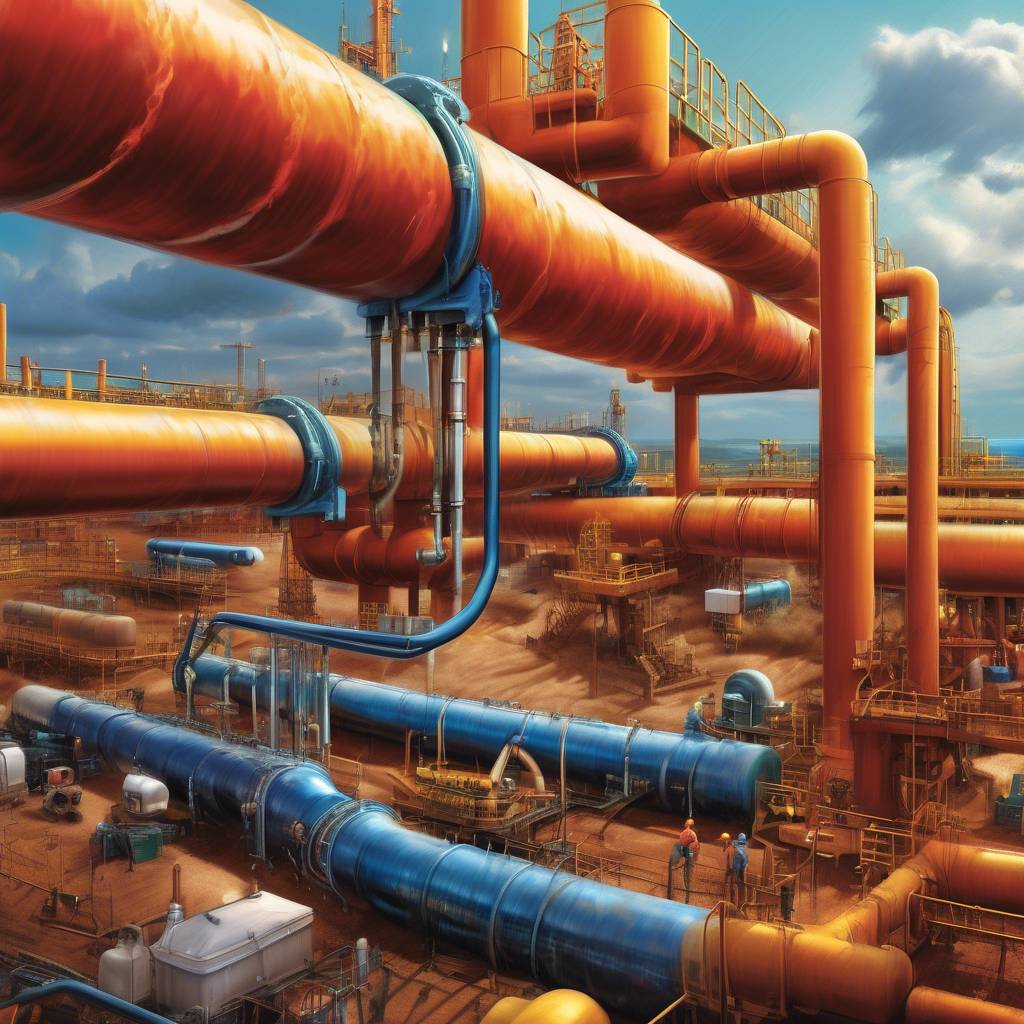The East African Crude Oil Pipeline (EACOP) project, set to be the world’s longest heated oil pipeline, faces challenges in funding its completion. The pipeline, which will transport up to 246,000 barrels of crude oil per day from Uganda to Tanzania, requires significant investment due to the technical difficulties of heating the waxy oil to keep it flowing. China, once a reliable lender for developing world projects, has recently shown hesitancy in completing the funding for EACOP, leaving the project in jeopardy of delays and potential financial losses for investors like TotalEnergies.
The delay in funding from China has led Uganda to consider alternative sources of financing, including partnerships with Persian Gulf countries. Despite the challenges, Ugandan officials remain optimistic about the project’s completion, as EACOP is seen as a generational opportunity to transform the country’s economy. The project has already faced resistance from environmental and human rights activists due to concerns about the impact on freshwater sources and communities along the pipeline route.
TotalEnergies, the largest corporate backer of EACOP, is facing pressure from shareholders and lawsuits from activists over the environmental impact of the project. The company’s investment in the pipeline could result in significant financial losses if the project is not completed. Western lenders have been hesitant to support EACOP due to these concerns, leaving the funding gap to be filled by Chinese and Persian Gulf investors.
China’s reduced lending to Africa in recent years has contributed to the funding challenges facing EACOP. The country’s economic issues, newfound emphasis on green investments, and exposure to debt defaults across Africa have led to a reluctance to fund large infrastructure projects like EACOP. Uganda is now exploring other options for financing the pipeline, including seeking support from Persian Gulf countries that are increasingly vying for influence in Africa.
Despite the uncertainties surrounding the project, Ugandan officials remain confident in securing financing for EACOP. The completion of the pipeline is crucial for Uganda’s economic growth, as it is expected to bring in significant revenue through taxes and dividends. The project is seen as a stepping stone to further development in infrastructure, mining, and tech industries in the country, and is seen as essential for attracting investment.
In conclusion, the completion of the East African Crude Oil Pipeline remains uncertain due to funding challenges and delays in securing financing. Despite the hurdles, Ugandan officials are optimistic about the project’s potential to transform the country’s economy and attract further investment. The involvement of Chinese and Persian Gulf investors will play a crucial role in determining the future of EACOP and its impact on the region. As work continues on the pipeline, the stakes are high for all parties involved, from investors to local communities impacted by the project.









